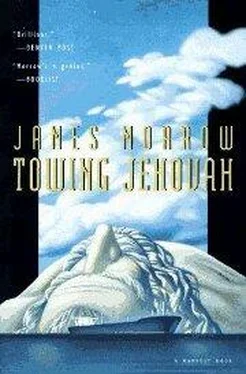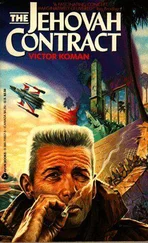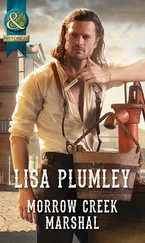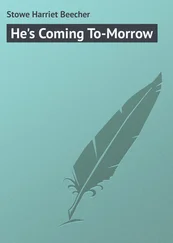At dawn the sea turtles came.
Hundreds of them, Popeye, swimming through my dreams, their shells glistening with Texas crude. Then the snowy egrets arrived, black as crows, then the roseate spoonbills, the blue herons…
I awoke in a sweat. I took a shower, dried off, read Act I of The Tempest — Prospero raising the storm and drawing the royal ship to his enchanted island, Miranda falling hopelessly in love with the castaway prince Ferdinand — and drank a glass of warm milk. At 0800 I finally got back to sleep.
The urge to pray was intense, but Cassie Fowler, who at age forty-one knew better than to believe in God, had so far managed to resist. There are no atheists in foxholes: a clever maxim, she felt — deft, wry, and appealing. And she was determined to prove it wrong.
For over fifteen hot, wretched, thirsty hours Cassie had endured her aquatic foxhole, a rubber dinghy adrift in the North Atlantic, and in all that time she’d been true to herself, never asking God for assistance. Cassie was a woman of integrity — a woman who’d spent the first decade of her adulthood writing antireligious, money-losing off-Broadway plays (the sorts of satires the critics termed “biting” when authored by a male and “strident” if by a female) — a woman who, having devoted most of her thirties to acquiring a Ph.D. in biology, had elected to teach at dull, hidebound Tarrytown Community College, a place where the students were unlikely to form positive opinions about either feminism or evolution without her intervention, and where she was free to conduct oddball little experiments (her initial finding being that, given the opportunity, the male Norway rat exhibits instincts toward its young every bit as nurturing as the female) without pressure to pull down a grant or publish her results.
Were Cassie’s situation any less desperate, it would have been comic, in a Samuel Beckett sort of way. Maneuvering the dinghy with a Ping-Pong paddle. Bailing it out with an Elvis Presley memorial drinking cup. Sheltering her bikini-clad body with a Betty Boop beach towel. “Help,” she gasped into the transceiver mike, furiously working the generator crank. “Please, somebody… heading east… last known latitude, two degrees north… last known longitude, thirty-seven west… help me.” No answer. Not one word. She might as well be praying.
To the east, she knew, lay Saint Paul’s Rocks, a tiny volcanic archipelago strung along the equator. The Rocks promised little — a chance to gather her strength, a reprieve from the endless bailing — but at this point a meaningless destination was better than none at all.
An authentic reenactment of Charles Darwin’s historic voyage undertaken on an exact replica of his ship: what a marvelous concept for a cruise, she’d thought on reading the brochure, a kind of Club Med vacation for rationalists. All during the flight to England, Cassie had imagined herself reporting back to her friends in the Central Park West Enlightenment League, proudly projecting her 35mm color slides of the Galapagos Islands’ native finches and lizards (she was planning to shoot over fifty rolls of film), descendants of the very beasts from whose anatomies Darwin had inferred that Creation traced not to the hand of God Almighty but to something far more interesting — and she’d continued to indulge in such cheerful fantasies when, on June 12, the Beagle II left the Cornish port of Charlestown, her twenty-four berths jammed with an unlikely assortment of biology professors, armchair naturalists, and spoiled college dropouts being deported by their exasperated parents. The itinerary devised by Maritime Adventures, Incorporated, had the Beagle II following Darwin’s precise route, with the exception of an about-face at Joas Pessoa so they might avail themselves of the Panama Canal and save seven months. Once they’d explored the Galapagos, a jetliner out of Guayaquil would take them back to England.
They never got past the equator. Hurricane Beatrice did not merely sink the Beagle II, it tore her apart like one of Cassie’s sophomores dissecting a dogfish. As the ship went down, Cassie found herself alone on a frigid sea, clinging to a spar and clutching her Betty Boop towel, bitterly absorbing the fact that among the stratagems by which Maritime Adventures kept its Galapagos package under a thousand dollars per person was the elimination of life rafts, life jackets, and backup batteries for the shortwave radio. Only through a miracle of chance did she manage to fish a hand-cranked transceiver from the flotsam and haul herself aboard the Beagle’s errant dinghy.
“Heading east… last known latitude, two north… last known longitude, thirty-seven west… help, somebody.”
Inexorably, maliciously, the sun came up: her one-eyed enemy, a predator as dangerous as any shark. The Betty Boop towel protected her from the rays, but her thirst soon became intolerable. The temptation to dip her Elvis cup into the ocean and drink was nearly overwhelming, though as a biologist she knew that would be fatal. Consume a pint of sea water, and along with those ten cubic inches of pure H2O she would also ingest a quantity of salt far beyond what her body required. Take a second helping, and her kidneys would now have enough H2O to process the salt in pint number one, but not enough to process the salt in pint number two. Drink a third pint — and so on, and so on, never getting ahead of the game. Inevitably her kidneys would turn imperialistic, stealing water from her other tissues. She would dry up, become febrile, die.
“Help me,” Cassie moaned, painfully rotating the transceiver crank. “Last known latitude, two north… longitude, thirty-seven west… water… water …” I shall not cry out to God, she vowed. I shall not pray for deliverance.
And suddenly they appeared, Saint Paul’s Rocks, six granite spires rising from the equator like aquatic stalactites, their peaks frosted with heaping mounds of seabird droppings. Briefly she savored the peculiar poetry of the moment. On February 12, 1832, the original Beagle had anchored here. At least I’ll go out in Darwin’s shadow, she mused. At least I’ve followed him to the end.
By dusk Cassie had made a landfall, maneuvering the dinghy against the lee side of the islet. Transceiver in hand, Betty Boop towel flung over her shoulder, she dragged herself up the highest spire, the jagged pumice tearing her palms and scouring her knees. An ice-cold can of Diet Coke hovered just out of reach; a frosty pitcher of lemonade beckoned from a neighboring crag; a frigid geyser of Hawaiian Punch spewed heavenward from a tide pool. Reaching the summit, she stood up, the towel spilling down her back like a monarch’s cape. It was all hers, the whole dreadful little archipelego. Her Royal Highness Cassie Fowler, Empress of Guano.
The wayfarers swooped down, squadron after squadron, brazen cormorants perching on her shoulders, bold gannets pecking at her hair. For all her terror and misery, she found herself wishing her students could see these birds; she was prepared to lecture about the Sulidae family in general and the blue-footed booby in particular. The blue-foot was a bird with a vision. While its red-shod cousin laid its eggs in a conventional nest built near the top of a tree, the blue-foot employed a picture of a nest, an elegant abstraction it created by squirting a ring of guano on the ground. Cassie loved the blue-footed booby, not only for its politics (the males did their fair share of sitting on the eggs and caring for the chicks) but also because here was a creature for whom the distinctions between life, art, and shit were less obvious than commonly supposed.
On all sides, the grim Darwinian rhythms played out: crabs eating plankton, gannets devouring crabs, big fish preying on little fish, an eternal orgy of killing, feasting, digesting, eliminating. Never before had Cassie felt so connected to brute evolutionary truth. Here was Nature, real Nature, red in claw, white in ca-ca, stripped of all Rousseauistic sentiment, rhapsodic as a cold sore, romantic as a yeast infection.
Читать дальше












